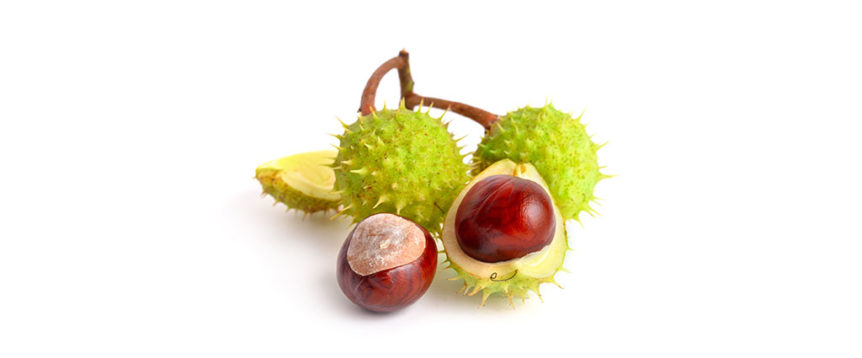› Health benefits
Today, horse chestnut is used as a dietary supplement for chronic venous insufficiency, hemorrhoids and swelling after surgery. There has been some research on the effectiveness of using it for chronic venous insufficiency, but little research has been done on its other uses.
A review of 17 studies published between 1976 and 2002 suggested that horse chestnut seed extract can improve leg pain, swelling and itching in people with chronic venous insufficiency when taken for a short period of time. Results from one of the studies suggest that horse chestnut seed extract may be as effective as wearing compression stockings.
Preliminary evidence from a Chinese study suggested that aescin, the main ingredient in horse chestnut, may help restore fertility in some men. All the men in the study also received other supplements and drugs, so it is unclear whether that improvement was due to horse chestnut alone or a combination of drugs and supplements.
› How much do I need?
The dosage varies depending on age and what it is being used for. Be sure to follow relevant directions on product labels, and consult your pharmacist, physician or other healthcare professional before using.
Unprocessed seeds, leaves, bark and flowers of the horse chestnut tree contain aesculin, which is poisonous and may increase the risk of bleeding. Proper processing of horse chestnut removes aesculin, so it is generally safe as long as it is processed. The extract may cause some side effects, such as itching, nausea, gastrointestinal upset, muscle spasms and headaches.
› Dietary supplements
Usable parts of the plant include seeds, bark and leaves, and seed extracts are most common.
Source: National Center for Complementary and Integrative Health
Please consult your health care provider before making changes to your vitamin/supplement regimen.


